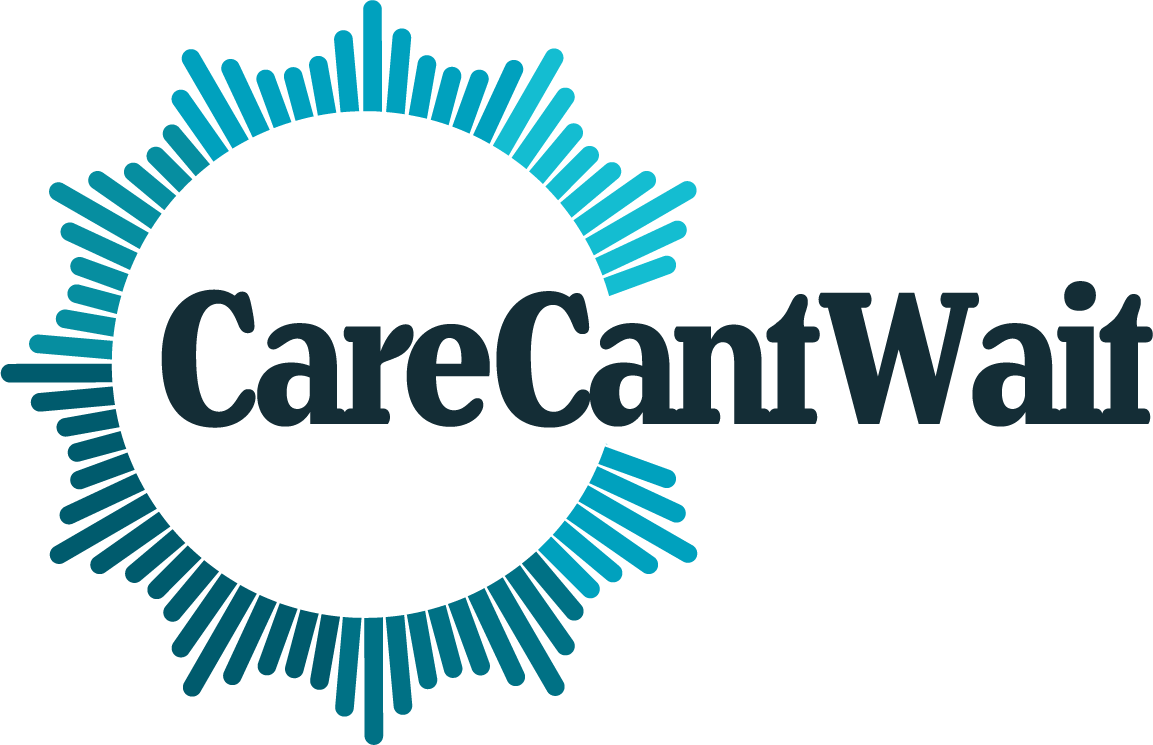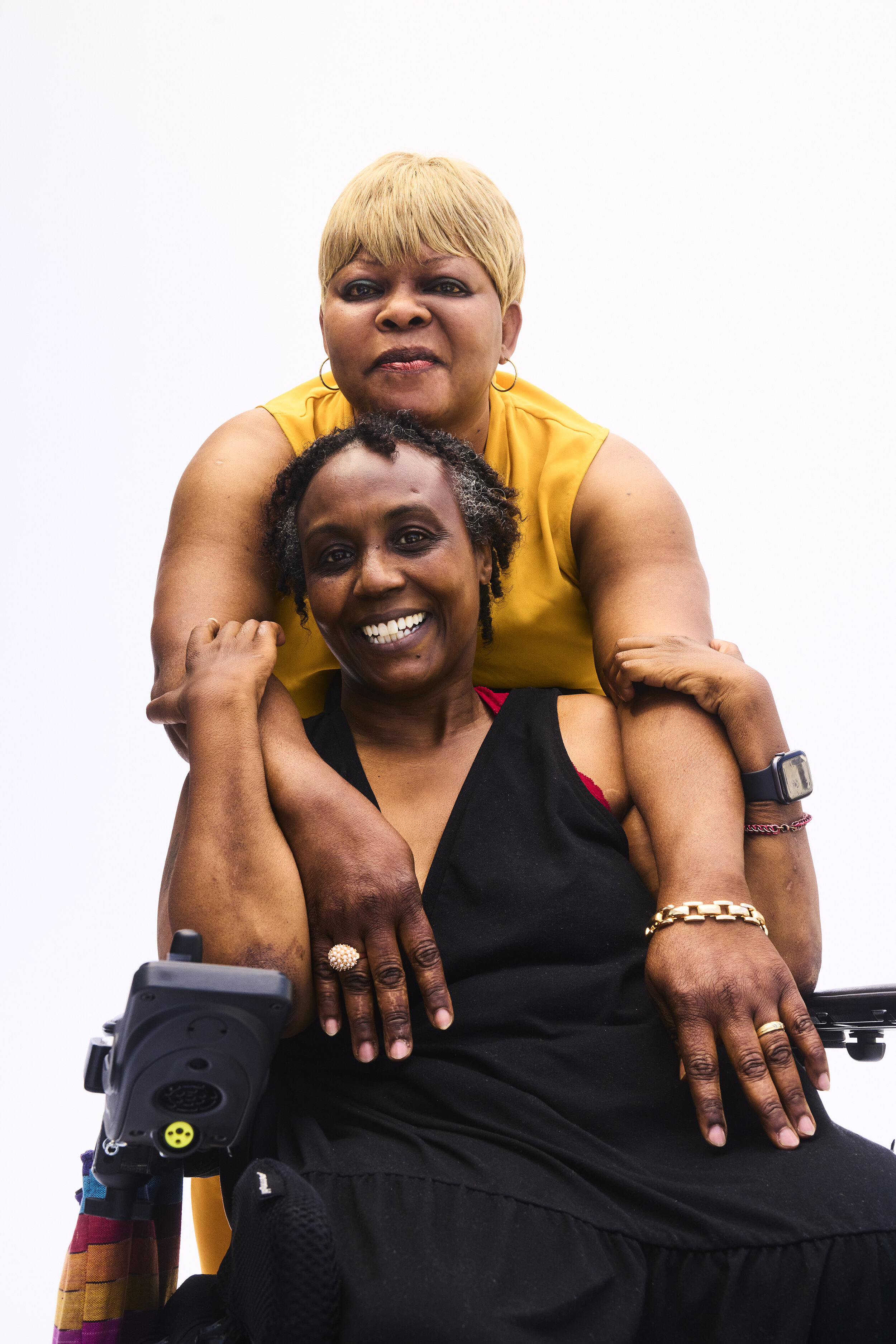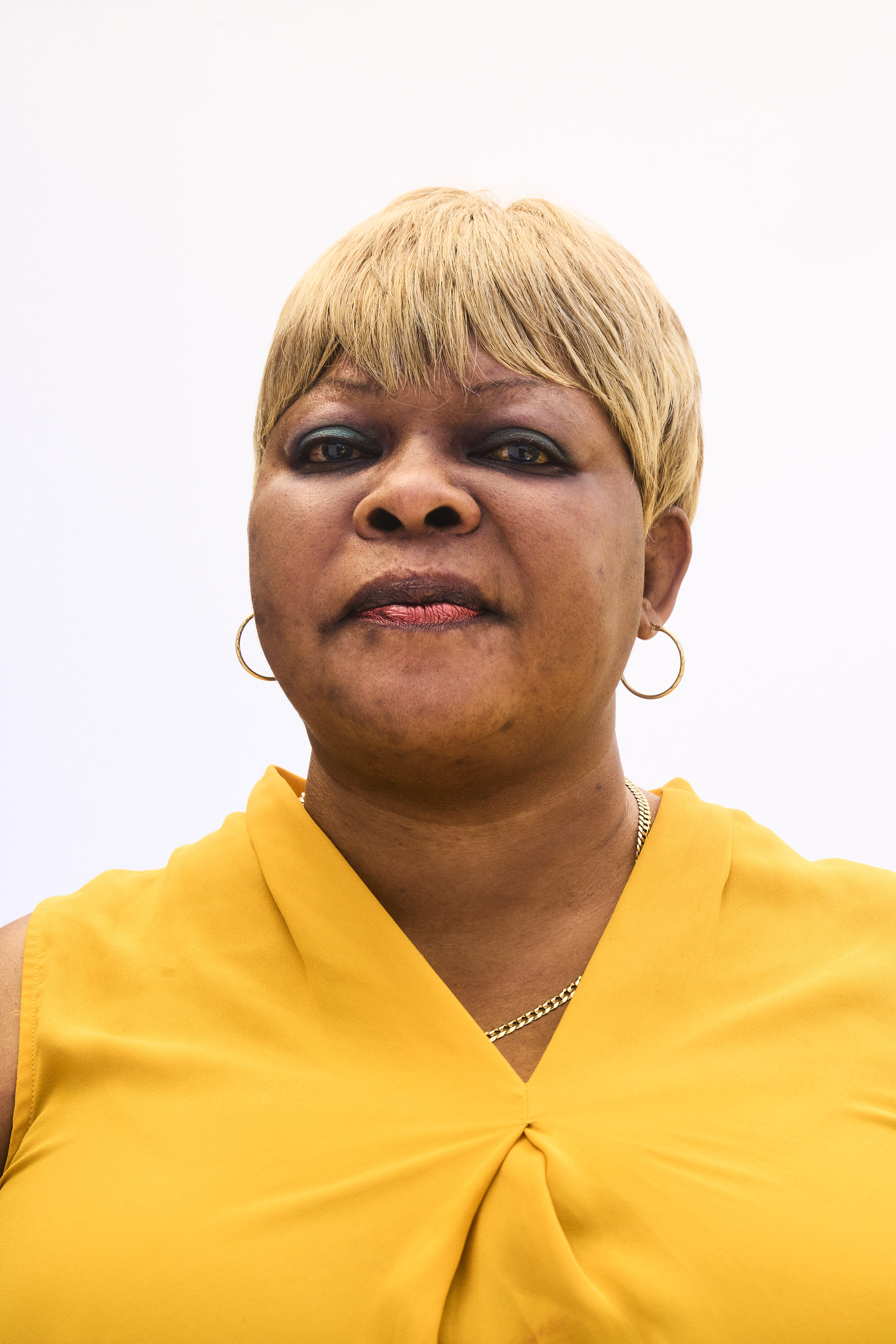Care Team Bios
Engracia Figueroa
In 1992, at age 22, Engracia Figueroa became disabled as the result of a spinal cord injury and left leg amputation. Since then she has been able to live a full life with the support of her personal care assistants that includes surfing, archery, yoga and acting. Engracia is a disability rights activist and the President of Communities Actively Living Independent and Free, an Independent Living Center based in downtown Los Angeles. Engracia is terrified of aging in our current system, which forces so many people with disabilities into institutions unnecessarily and hopes that by sharing her experiences, she can help create policy change. Engracia is a current fellow of Hand in Hand's Home and Community Based Storytelling Fellowship.
Christine "June" Laing
Originally from Jamaica, Christine "June" Laing recently become a U.S. Citizen. She is has worked as a certified nursing assistant for 10 years and is a union steward for the SEIU2015. Christine has two grown children, Roger and Toya and is the proud grandmother of 14 year-old Tasia, and Rico who is 9.
Interview Transcript
Engracia: Christine is her given name well, I call her June and June, I believe it's her middle name, but it is her. I know her good friends and family call her June. And it's also because she's born in June. I met June after I got pneumonia that I had to go to a rehab center to heal. June had just started working there and she immediately started talking to me as if we've known each other for years to immediately have that love and instant, feeling it was just like it clicked in from there, we've always had a great connection and it's never stopped.
Christine: I was doing this from nine years old, but I wasn't certified because my dad was sick and I had to take care of him. I migrated to the United States 2020. So I went to school and got a CNA certificate. One of these job that had a to one here after that called me that went and did the interview. And I'm still there up until this point in time. That's where I met Engracia.
Engracia: What makes June great nurse is what make all great nurses, nurses. I truly believe and I've always joked and said that you have to have some great Sangre de Santo. You have to have the blood of a saint because there is no way you can enter into this profession in any level. Without having that saintly blood or compassion, only special people can do that and that she gives across the board to everyone.
Christine: I felt like we are family, that's all our deep our relationship is. She knows my grandkids names from. I tell that. Tell her she hasn't forgotten. This is a close knit family, no longer patient and nurse, not caregiver and patient. We are family
Engracia: Caregiving affected my life because it allowed me to maintain the level of independence that I thought I lost acquiring a disability. They are my hands. They are the legs that when I can't reach something they help me do. Those things that I can't do in caregiving is where that empathy and compassion is like, “OK, OK, so now I know I need to have this. I can help you do these things. So that way you can focus on those other things that you can do.”
Christine: You have to have patience in everything you do love, understanding. And if somebody says something, you listen before you speak. If both parties are speaking at the same time, nobody will hear what the other has to say. I learned that in my job to listen and I learn more patience.
Engracia: What needs to change about our current system is they need to improve the payment, give livable wages to caregivers. It's an oppressive system that is really holding these people back because it's mostly women that are caring for people and its the majority of women of color, of various national descents.
Christine: I love my jobs and sometimes I don't because of racism and favoritism. But I learn to deal with it in my own way. And there's been like twice I had, like, resigned. And I remember the patient said, “Oh Christine. You're leaving? You take such good care of me.” I've had to tear up my resignation and move. You know, my heart couldn't move me to leave them we're doing good jobs, but the pay we're not getting good pay. This is what I really love, somebody to put into law or a bill. Nobody in health care should get less than 20 dollars per hour. It should be more because the work is hard. I'd like to take a vacation to relax. You want to take two weeks. You can't do that because if we don't take ourselves, are we going to be around to take care of the patients?
Engracia: The lack of livable wages for caregivers is rooted in slavery, enslaved women were the the CMA's before it was a CMA when it went from being enslaved, persons it went to being called the domestic workers. It's come from an antebellum slavery mentality.
Christine: We're professional. We should be paid as professional. We're not we're just taking it for granted. And the ratio between like a CNA and a charger's is so much higher, they get so much more pay and we're the ones who are doing the actual jobs. So I don't I don't get it.
Engracia: This Biden $400 billion home and community based service plan will allow seniors and people with disabilities like me to age with dignity and pride in our own homes. Those people that even if they weren't biologically related, but they loved us, they cared for us, they doted on us, they actually, filled in our well of who we become, that's caregiving.
Christine: Me and Engracia, we have a bond and we wish to keep it that way. We are family and I enjoy that support her. She never — she's always a high spirited person. You never see her down. If you are in a bad mood, she lift you out of it. She always talk to us like her older sister and we really appreciate that. And I love her very much.
Engracia: I just truly would want people to understand that we're only but one moment away from being disabled ourselves. We're only about one moment away from being a senior citizen. We're only but one moment away from needing caregivers. At some point, everyone is disabled, whether it's for a moment, whether it's for the rest of our lives. So we all need caregivers throughout our lives.








